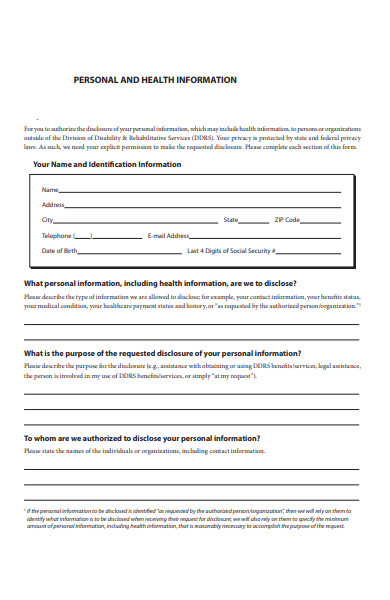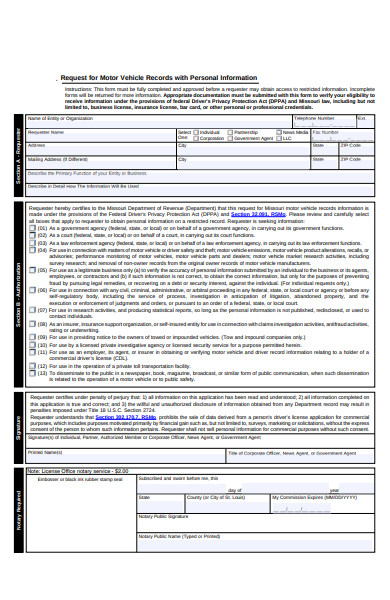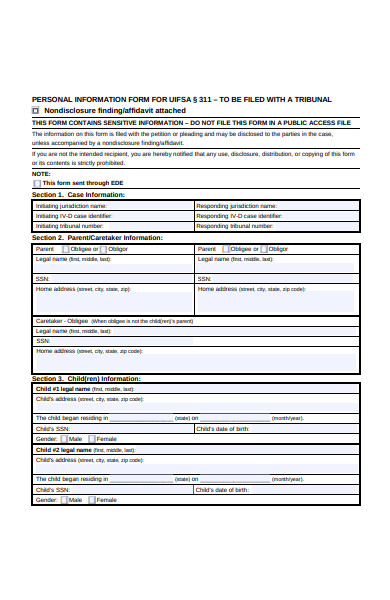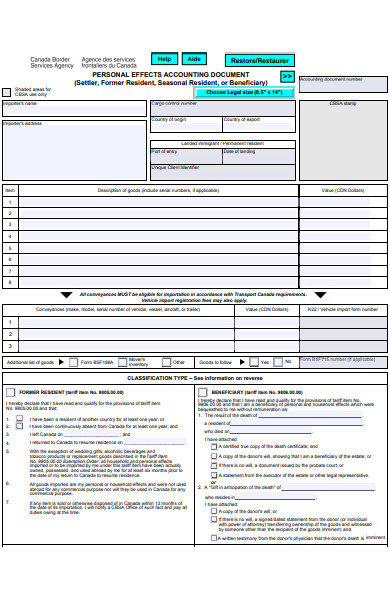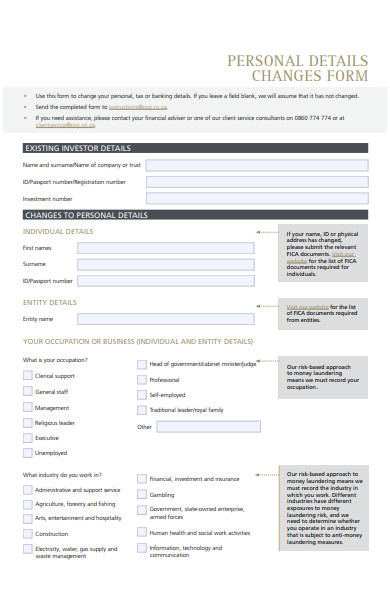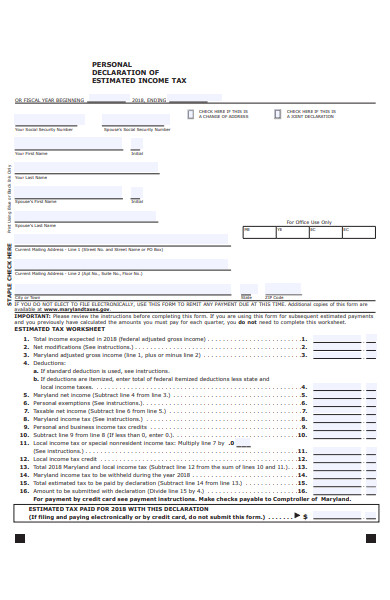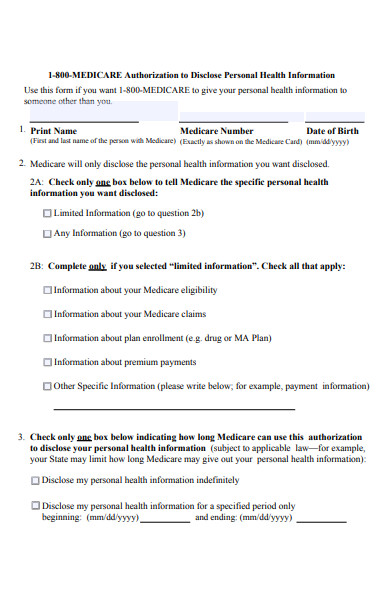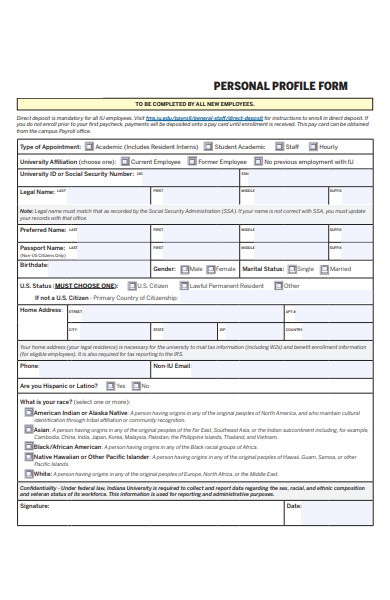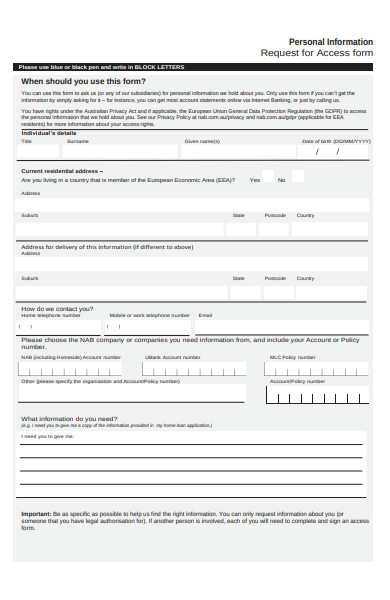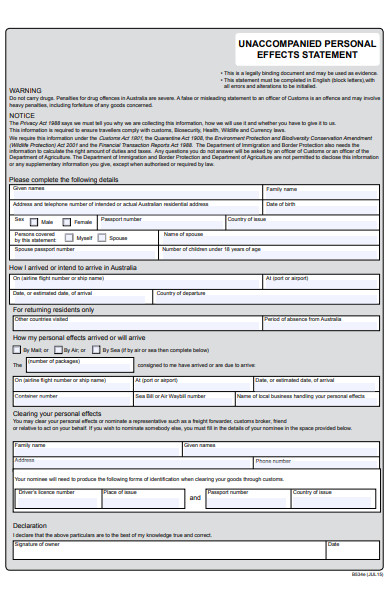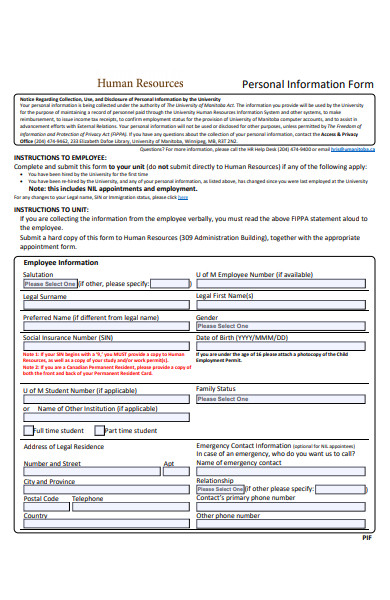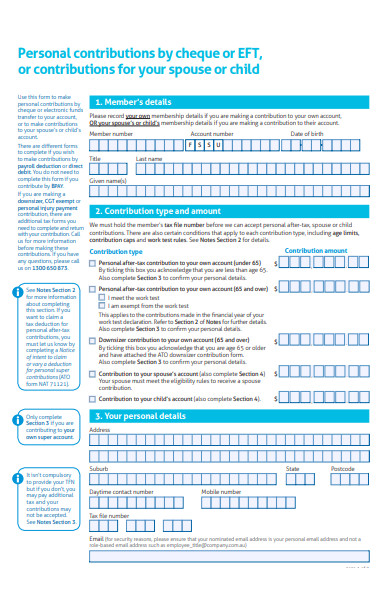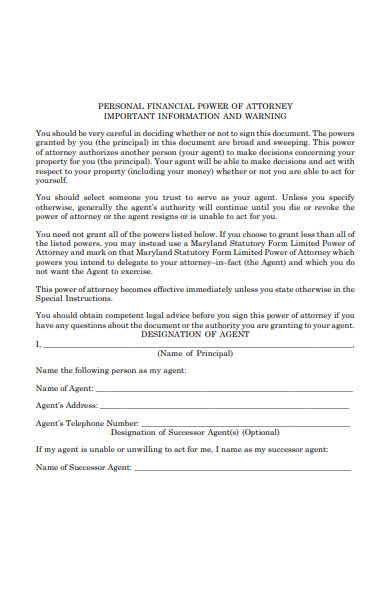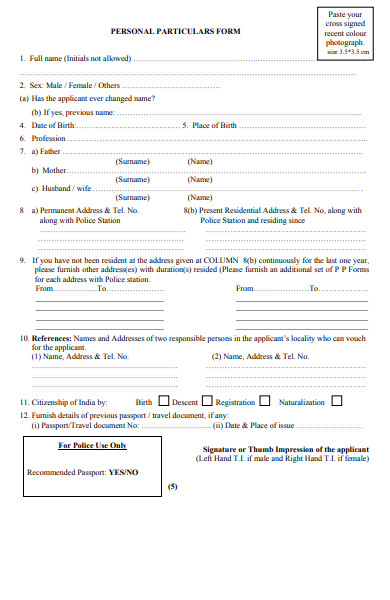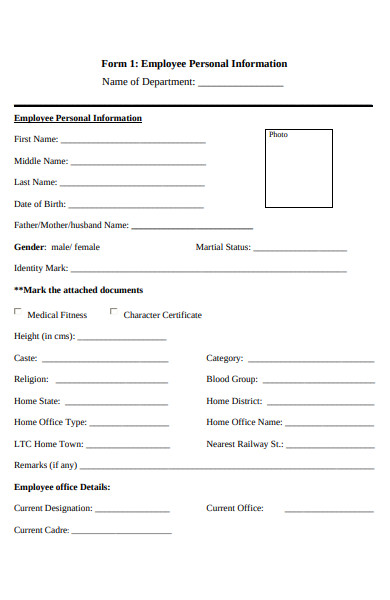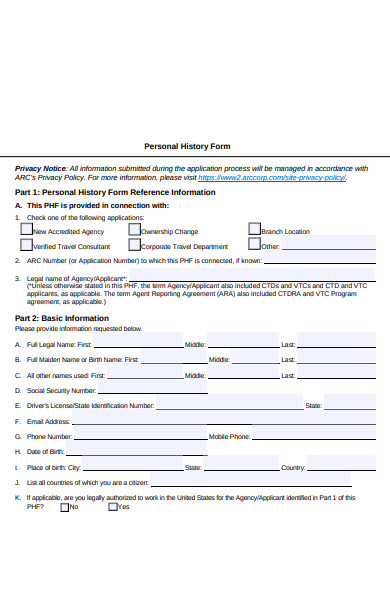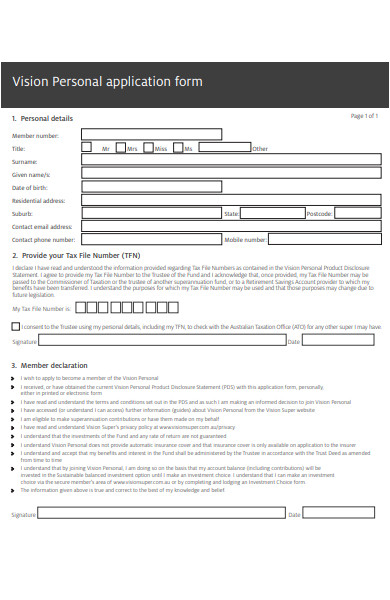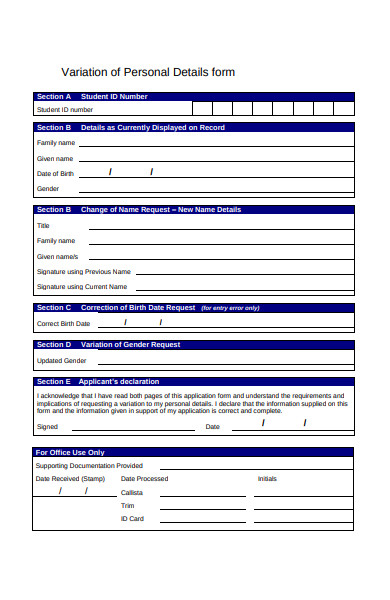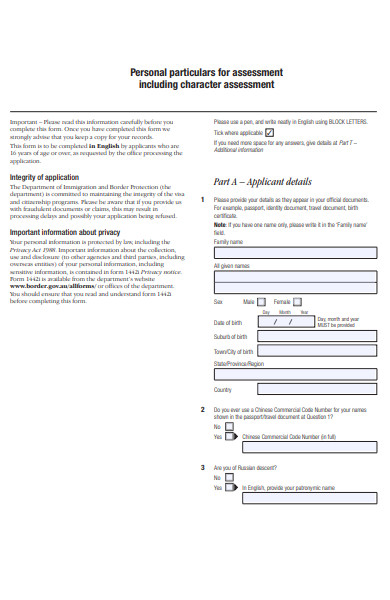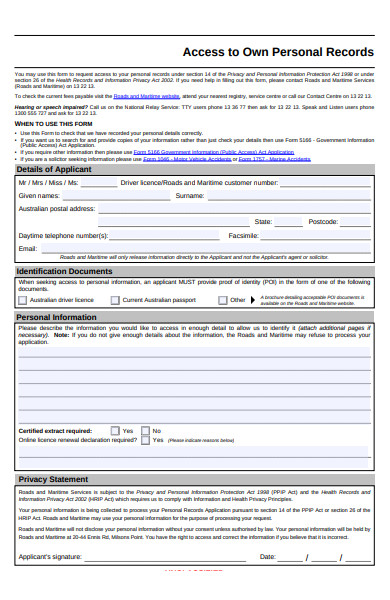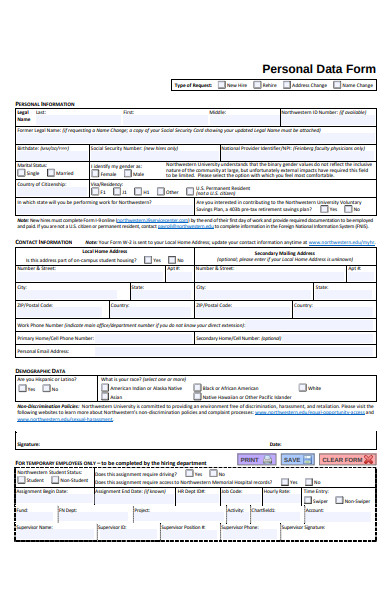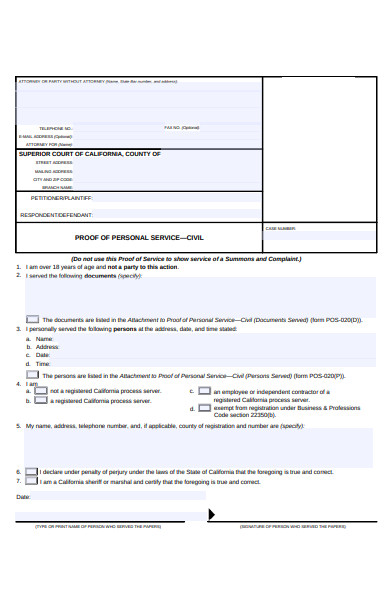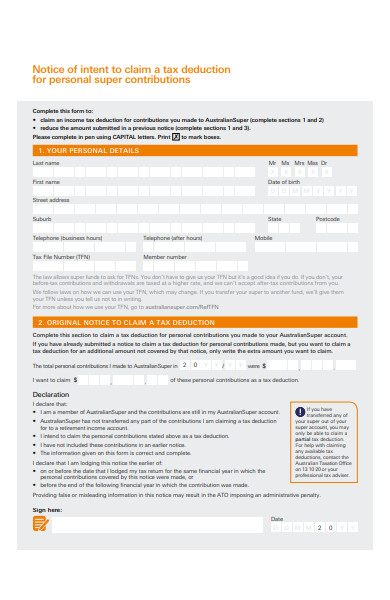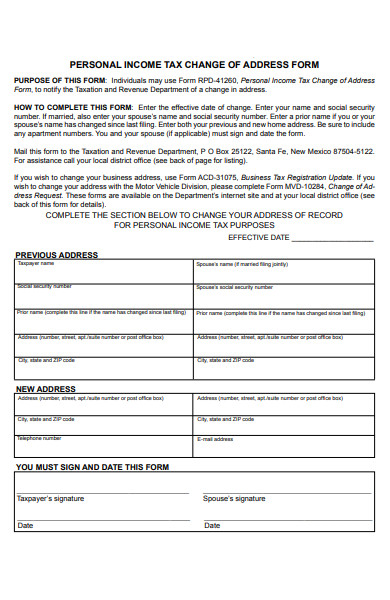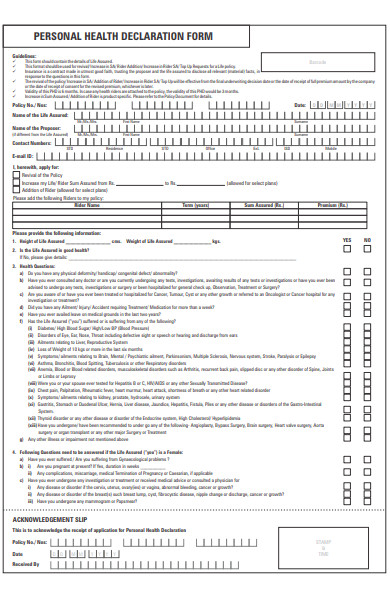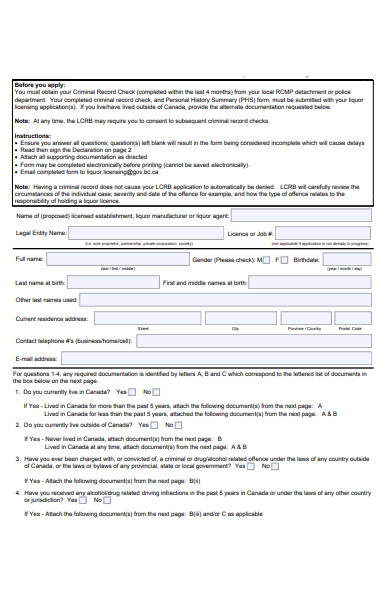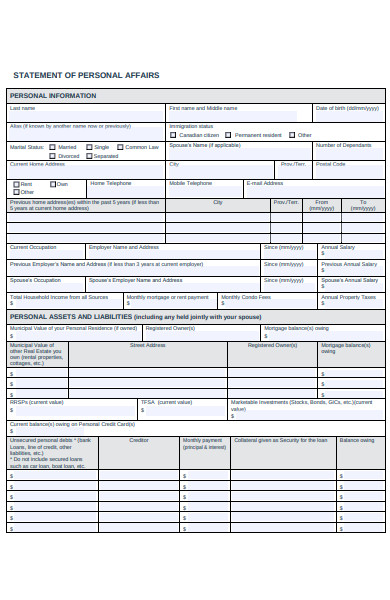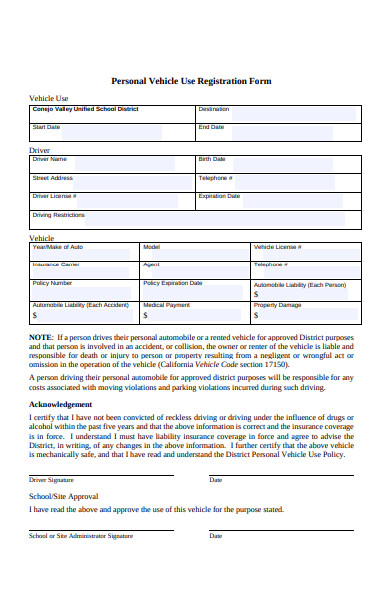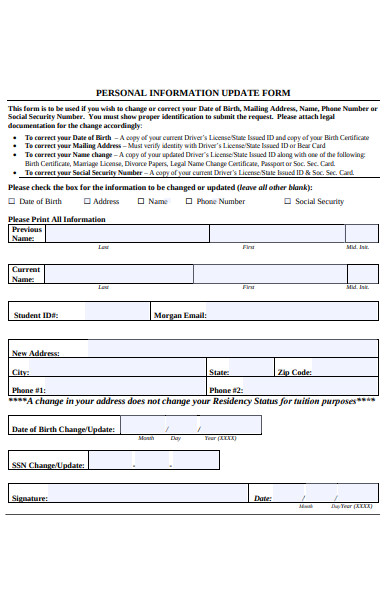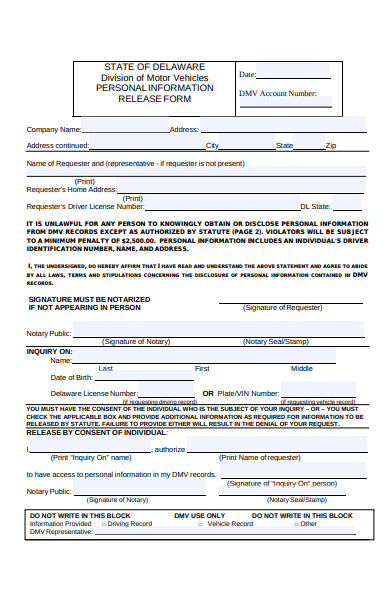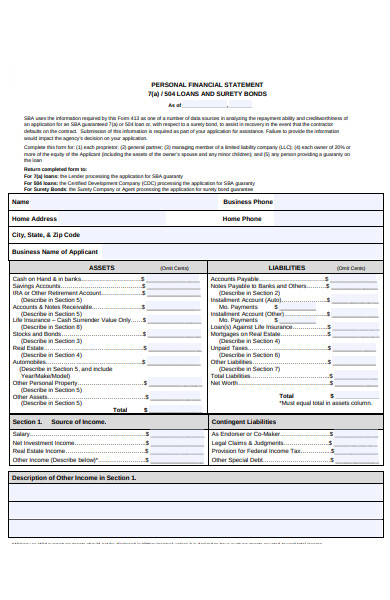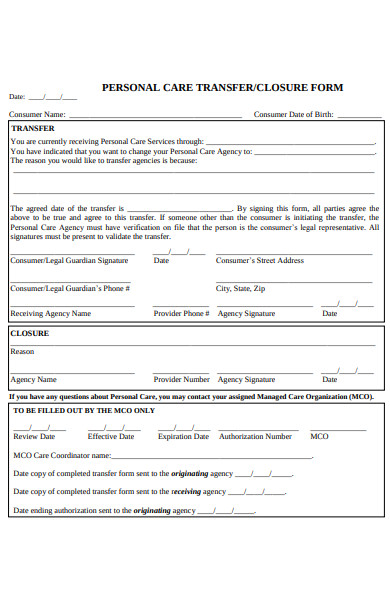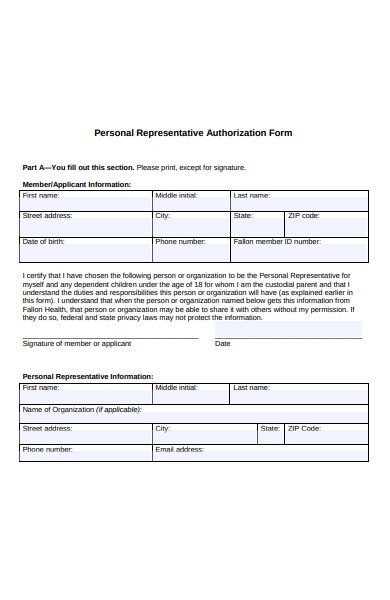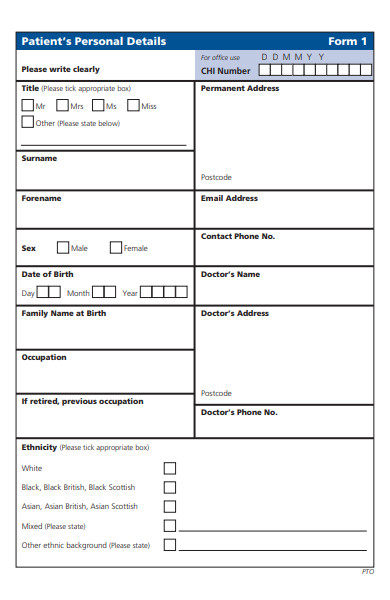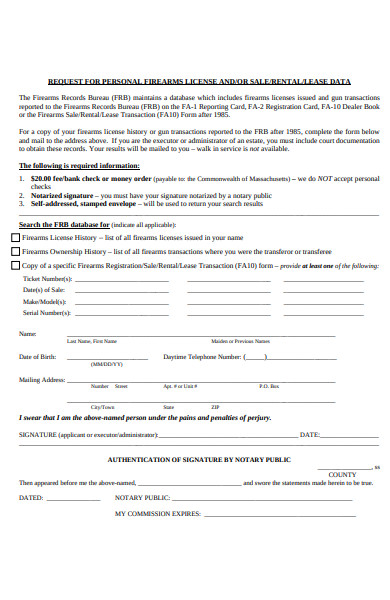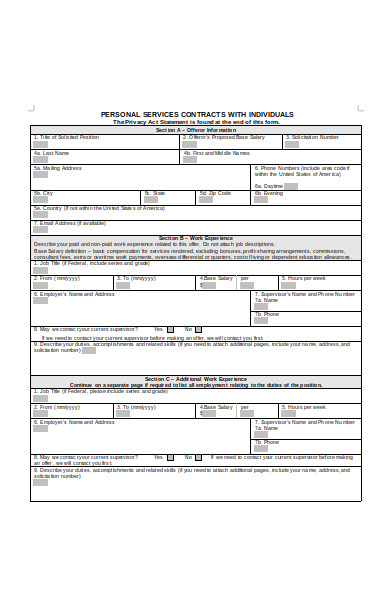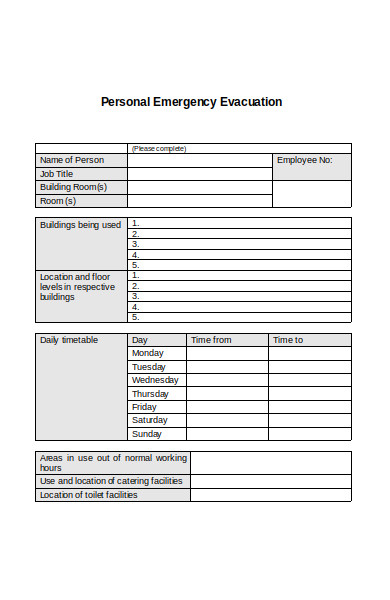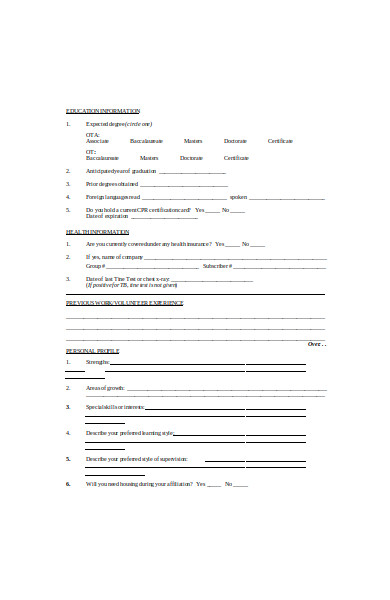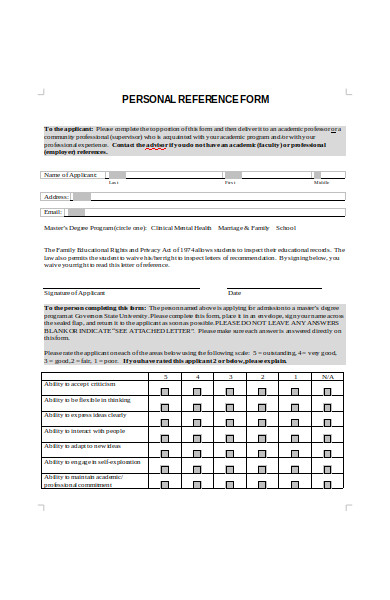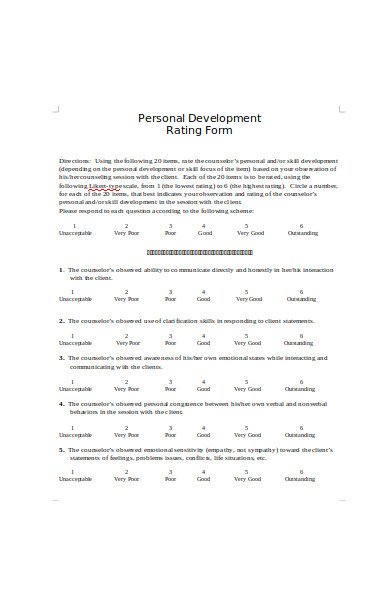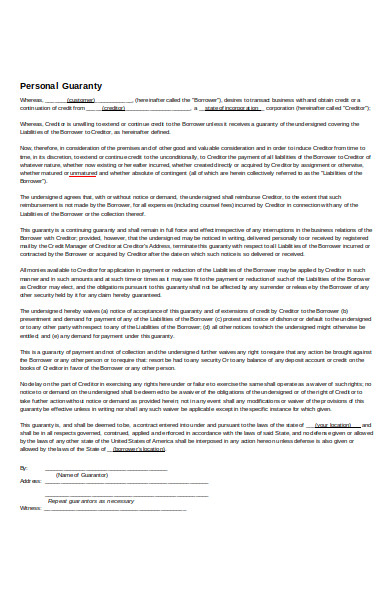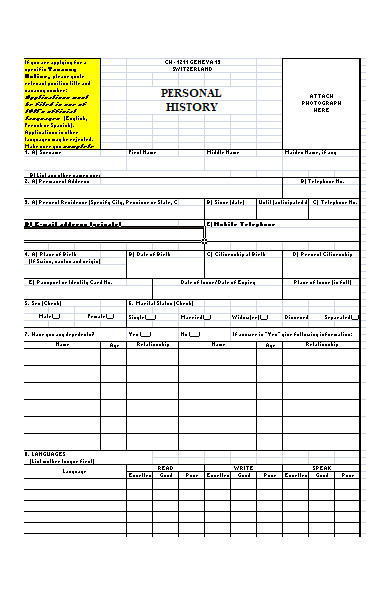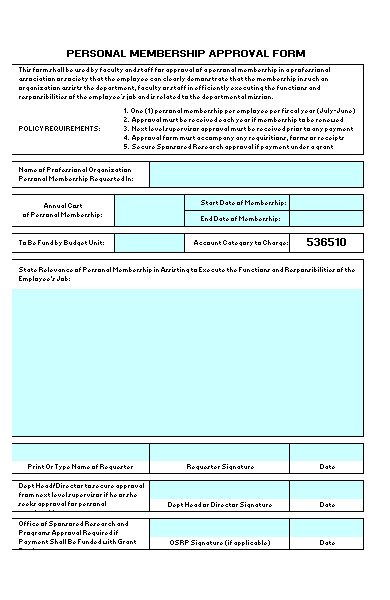“What’s your name?” A question commonly asked by people we just met. Sometimes we become hesitant but ended up telling them. Asking names is an excellent start to spark up a conversation. But, what if names reveal your identity and personality? Will you still give a random stranger your name?
FREE 42+ Personal Forms in PDF | MS Word | Excel
1. Personal & Health Information Form
2. Vehicle Records Personal Information Form
3. Personal Case Details Form
4. Personal Effects Accounting Document Form
5. Personal Details Change Form
6. Personal Declaration of Income Tax Form
7. Medicare Personal Form
8. Personal Profile Form
9. Personal Request for Access Form
10. Unaccompanied Personal Statement Form
11. HR Personal Information Form
12. Personal Contribution Cheque Form
13. Personal Financial Form
14. Personal Particulars Form
15. Employee Personal Information Form
16. Personal History Form
17. Vision Personal Application Form
18. Variation of Personal Details Form
19. Personal Assessment Character Form
20. Own Personal Record Form
21. Personal Data Form
22. Personal Service Form
23. Personal Tax Deduction Form
24. Personal Address Form
25. Personal Health Declaration Form
26. Personal Liquor License Form
27. Statement of Personal Affairs Form
28. Personal Vehicle Use Registration Form
29. Personal Information Update Form
30. Personal Information Release Form
31. Personal Loans and Surety Bonds Form
32. Personal Care Transfer Form
33. Personal Representative Authorization Form
34. Patient Personal Details Form
35. Personal Search Request Form
36. Personal Service Contract Form
37. Personal Emergency Evacuation Form
38. Personal Data Sheet Form
39. Personal Reference Form
40. Personal Development Rating Form
41. Personal Guaranty Form
42. Personal History Form
43. Personal Membership Approval Form
What Is Your Personal Information?
Upon conception of a baby in a woman’s womb, the couple starts thinking about the baby’s name. After nine months of carrying, a child is born and gets his or her first legal document. This document called a birth certificate has personal information about your birth name, date of birth, parent’s name, and address. It is also the ticket to apply for a passport, social security number, driver’s license, enrollment in school, and other services that require registration. Consider birth certificates as the most authentic proof of your uniqueness in a large pool of citizens. Moreover, it is the first layer of personal information acquired on your date of birth.
As you grow up and explore the world, you can enroll yourself in various services such as health, loan, bank account opening, etc. When you apply for these services, they require other documents to supplement your application other than the identification powers of your birth certificate. Source of finances, assets, education history and employment history become essential parts of the second layer of personal information. If you ever decide to start a family, information about dependents and spouse becomes the third layer of personal information. However, this only happens if you change your civil status to married.
This Is Me: What’s In A Personal Form?
Different creatures have distinguishing features on their bodies or behavior. Similar to these creatures, we also have features that demonstrate our uniqueness. Some of our information may be the same as many people, like first names and birthdays. In the birthday paradox, it only takes 23 people to illustrate that there is a 50% chance of two people having the same birthday, excluding the birth year. While this may be true, probabilities are limited concepts. The creative human mind can create more than what statistics tell us. Perhaps, a combination of these four categories makes you a distinct species on the planet unless somebody stole your identity.
-
Name
There is a higher chance that you share the same first name with a lot of people. If you look it up on the internet, you can find a list of the popular given names for a baby like James, Mary, John, and many more. Although you have the same first names, you probably cannot have the same surname. It is still possible, but the chances are smaller.
Furthermore, people have the liberty to change their names legally, especially for social and business settings. Also, women change their names after getting married. If possible, don’t hope for someone having the same legal name as yours.
On the other hand, some societies prefer mononymous naming. The Indonesian and Javanese cultures give a singular name to their children. Their government has no problem issuing their identification cards because it is acceptable in their system. However, it becomes an issue with the Western countries that considers a legal name consisting of first name and surname. A conflict of interest arises with this issue. Either mononym or polynym, a person’s name is the best representation of his or her identity.
-
Citizenship
The moment you got out of your mother’s womb, you become a citizen. In legal terms, it’s called birthright citizenship. While it may be true in most American territories, it does not apply to all countries. Personal forms usually require citizenship because it is one of the factors in applying for jobs or employment opportunities. Also, being a citizen of a country protects you from deportation and lets you experience the benefits provided by the government. Moreover, knowing somebody’s citizenship makes him or her unique. Citizenship tells a lot about the cultural background, reason for the behavior, and rights endowed by his or her country.
Let’s say you want to travel to other countries, but you don’t have any proof of citizenship. Then, you better kiss goodbye to that dream if you don’t acquire citizenship status. A stateless foreigner doesn’t look good for the immigration department. They may find you suspicious of smuggling illegal items. The chances of receiving a rejection letter are greater.
-
Bloodline
The family history is important in determining one’s individuality. Some people may have the same name, but they couldn’t have the same set of parents. Understanding the applicant’s dependents help the company or recruiter in their process for benefits. In health insurance forms, the list of qualified dependents determines who gets reimbursed in their financial expenses in the case of hospitalization. Aside from that, the contact person in emergency cases usually comes from the nuclear family members.
Moreover, your family history is part of your personal information because you carry a part of the genes of your parents. Although some personal information forms may not require family background, it would be best to include them just in case. An emergency scenario can happen anytime, and his or her family should receive a notification about it.
-
Registered Numbers
The invention of numbers became useful for humans such that it comes to the point of becoming part of a person’s individuality. No, phone numbers do not count because you can easily replace one. Your unique nine-digit number registered in the Social Security (SS) system is your lifetime passport to a lot of benefits. The numbers generated by this system are by region and batch. It is similar to the importance of citizenship in a professional career and daily life encounters.
Registered numbers make financial matters more accessible. If you have a business or company, register it in the government’s system to enjoy the perks of copyright laws. If you want to apply for loans, you can easily do so because your SS number adds credibility to your profile. Financial-related transactions reflect your record in your registered country’s database. If you have a clean record, you wouldn’t have any problem with making transactions in and out of the country.
Your Name Is A Fortune-Teller
Some couples love to experiment with the names of their children. The child’s name can be of a dog’s breed, a sportscar, color, or even a biblical verse. Although unusual names may astound you, a 1948 study by two Harvard professors relates the names of students to their academic performance. In the study, uncommon names showed lower performance than common ones. Succeeding studies after its publication year supported the notion that names influence our choices in life, whether it be in the profession, academic grades, place of residence, and behavior in the workplace.
Furthermore, the connection between a person’s name and racial discrimination might be evident in work opportunities, too. In a 2004 research by economists using resumes as tools, the “white-sounding names” received more callbacks than “black-sounding ones.” This question may pop in your mind: “Is a person’s name the fortune-teller of your life’s journey?”
The idea that common names give more confidence and a better life for a person is somewhat questionable. If you find this piece of study inaccurate, then you are not alone. Some researchers debated the results of the research and insisted that the methodology was incorrect. They argued that although uncommon names bother a person, it has no direct relationship to life decisions. Perhaps, with the prevalence of more creative names today, it might not be the case. After all, it is hard work and perseverance that will make a person successful.
Names may reflect the society and place of residence. If you live in China, it is least likely to encounter a child named Smith or Veronica. Despite that, names are merely words written on papers. It does not represent a person’s capabilities nor achievements. Better off, names could be factors, but it is not an indicator of success. Whether your name sounds Asian, African, or American, you can always be proud of it.
How Do I Make A Personal Form?
Asking for personal information doesn’t require much thought. Come to think of it as getting to know questions that you ask a person you just met at camp. It usually starts with the name, birthday, address, and going deeper to the family-related questions until you either run out of time or you creep out the person. There can be tough times wherein your brain can’t seem to organize your thoughts. If ever you get stuck in making a personal form, here are the best technique to get those brain cells working efficiently:
Step 1: Identify Information Needed
The primary step for any form is to understand the why and what of your data. Once you have established the purpose, you can now sort out which information from any interested applicant will be useful to you. In formulating the questions, be in the shoes of the company. These questions must answer this: “Why will I need this data?” If there comes a time you are hesitant of your answer, then ditch that information because it might be unnecessary. After plotting all these questions, wear the shoes of an applicant. You must evaluate the drafted questions from the perspective of an applicant to know if the information asked are not too suspicious. Judith Martin once remarked, “there is no etiquette rule that decrees one must give out personal information to anyone who asks.”
Step 2: Draft the Personal Form
After the conceptualization of the questions, start drafting the form. Arrange the elements on your mind. Do you need some shapes in the form? Do you need a table for the format? As much as possible, the questions should be in a logical order. Always start with the first layer of personal information, then, if necessary, add the second layer. At the same time, think of the best ways to present this question to any interested applicant. Be patient. The drafting process is a tedious trial and error but take heed for great things take time.
Step 3: Arrange the Elements Creatively
A personal information form may not sound exciting, but it still needs creativity. By doing so, it subtly builds trust for the applicant. The effort you give to a form speaks a lot about how you handle people, including their information. It is essential to establish credibility from the design itself. In that way, an applicant would feel comfortable sharing her details with you. In some research studies with website design, a visitor evaluates the design in the first few seconds. If the site design looks unprofessional, it dramatically increases unhappy visitors who wouldn’t recommend your site to others. “We’re psychologically hardwired to trust beautiful people,” remarked Dr. Brent Coker, the author of the said study.
Step 4: Review and Revise the Form
Bad things can happen anytime. Good works can’t repel the existence of unexpected, unfortunate events. However, being meticulous with the process of reviewing and revising lowers the chance of getting on the brink. Personal information is crucial data. An individual has the right to understand how his or her data is necessary for the process. Yes, he or she can file a case if ever disclosure of personal information happens. To prevent such occurrence, review the form. Make sure that the instructions stated in the form are brief and concise. Revise if needed. At least, with these efforts, your level of confidence about the personal information form increases.
Step 5: Print the Personal Form
If the form is well-polished already, print it. Nothing feels better than seeing your form on a piece of paper and ready for distribution. Also, another option is to upload it on your website if ever you have an online site. Hopefully, applicants will come rushing in to fill their details on your professionally-crafted personal information form. Using these steps helps you work efficiently and meets the demands in an ever-changing and fast-paced industry.
Someone who is not careful about sharing information with a stranger is at risk of fraud. One day, you might find yourself in a situation where your bank balance becomes empty. Moreover, the online world creates a higher risk for us. There are these data brokers who collect and sell data to other data brokers. If this information goes to the wrong hands, your accounts might get into a mess. But, you can always start building up protection by being mindful of the information you share with others.
Related Posts
FREE 9+ Sample Property Statement Forms in PDF WORD
FREE 8+ Sample Personal Health Forms in PDF WORD
FREE 8+ Health Record Forms Samples, Examples, Formats
FREE 8+ Sample Personal Information Forms PDF
FREE 9+ Sample Personal Expense Forms in PDF WORD
FREE 11+ Personal Information Forms in Samples, Examples, Formats
FREE 15+ Personal Information Forms in PDF WORD
FREE 7+ Employee Personal Information Form in Samples ...
FREE 7+ Sample Personal Appraisal Forms in PDF DOC
FREE 8+ Personal Financial Statement Form Samples in PDF WORD
FREE 10+ Sample Financial Assessment Forms in PDF WORD
FREE 8+ Personal Loan Agreement Form Samples in PDF WORD
FREE 5+ Personal Training Assessment Forms in WORD PDF
FREE 8+ Sample Personal Budget Forms in WORD PDF | XLS

